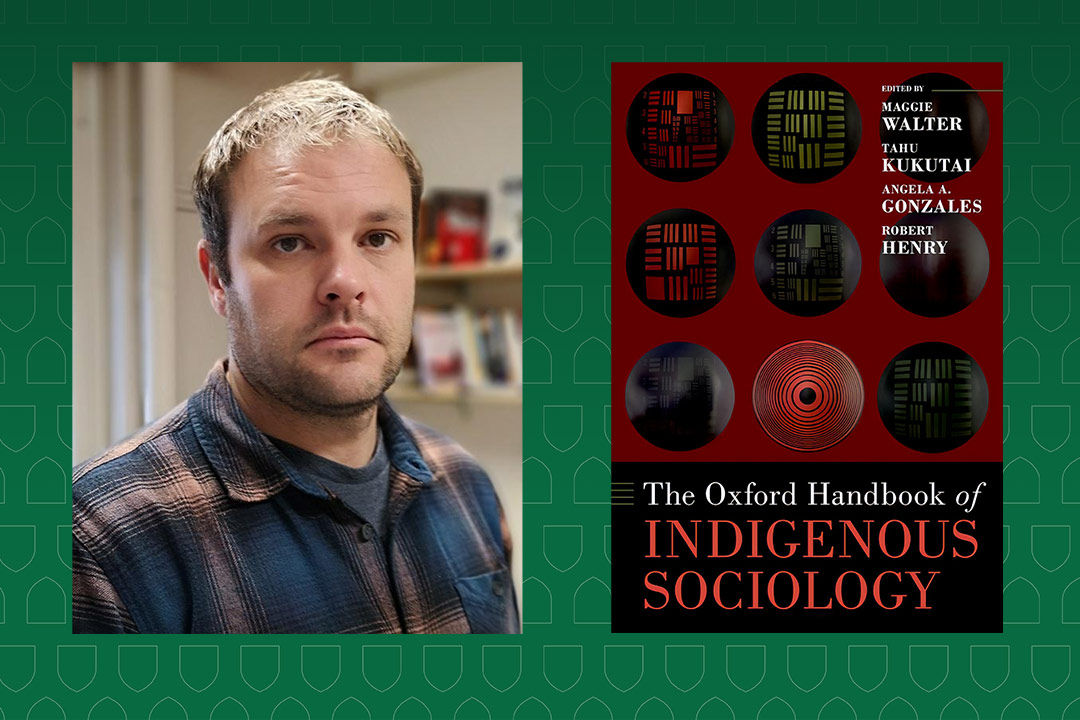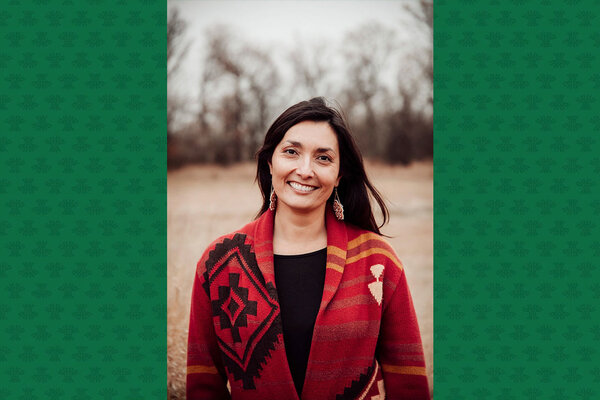
Finding a new path for sociology
In The Oxford Handbook of Indigenous Sociology, USask associate professor Dr. Robert Henry (PhD) sends a message
By Chris Putnam
A new book co-edited by a University of Saskatchewan (USask) faculty member is claiming space for Indigenous sociologists.
Dr. Robert Henry (PhD) is one of four editors of The Oxford Handbook of Indigenous Sociology, a new text released last month by Oxford University Press.
The volume is both a survey of Indigenous sociological thinking and a statement about the field. Indigenous sociology, argue the book’s creators, is a distinct discipline—not simply sociology about Indigenous people, but sociology by Indigenous sociologists.
“When we started to bring this collection together, we began a conversation about how do we begin to talk back to sociology,”said Henry, the Canada Research Chair in Indigenous Justice and Well-being and an associate professor in the College of Arts and Science’s Department of Indigenous Studies.
“A book like this is needed because we really haven’t explored the role of Indigenous perspectives within sociology. We’ve explored a lot of the ways in which sociology examines Indigenous lifeworlds, but not the other way around.”
Lifeworld is a term used in sociology to describe the basic understandings and experiences that shape how a person perceives the world. Western sociology, said Henry, has frequently “glazed over or missed” some of the intricacies of Indigenous lifeworlds: from concepts of kinship to the ways in which colonization shapes the everyday lives of Indigenous people.
Oxford University Press describes books in the Oxford Handbook series as authoritative surveys of original research in a subject area.
Henry’s co-editors on the book—Dr. Maggie Walter (PhD), Dr. Tahu Kukutai (PhD) and Dr. Angela Gonzales (PhD)—are among the world’s leading Indigenous sociologists. All of the book’s contributors are Indigenous academics whose research puts Indigenous perspectives at the centre. They include Dr. Simon Lambert (PhD) of the USask Department of Indigenous Studies, who wrote a chapter titled “Indigenous Societies and Disasters.”
The Oxford Handbook of Indigenous Sociology is divided into sections on social class, race and gender. One focus of the book is on moving beyond portrayals of Indigenous people through a deficit lens—one in which Indigenous people are seen as disadvantaged or lacking—to perspectives that recognize strength and resilience.
That theme is present in one of Henry’s contributions to the book, a chapter about his research into Indigenous prairie street gang members.
“It’s taking one individual’s life history and looking at how individuals become engaged in street gangs not from a place of deficit or social disorganization, but rather one of survivance: one where individuals survive, resist and resurge themselves,” Henry said. “Yes, the individual understands the idea of joining a gang is wrong, but they, because of colonization and colonialism, are very limited in what they can do.”
The new book focuses on Canada, the United States, New Zealand / Aotearoa and Australia because of these countries’ similar colonial histories.
“We’re hoping that others can see this collection and then we can blow it up a little bit larger: including the South, including Africa, Asia and so forth, and really start looking at Indigenous experiences on a global scale,” said Henry.


